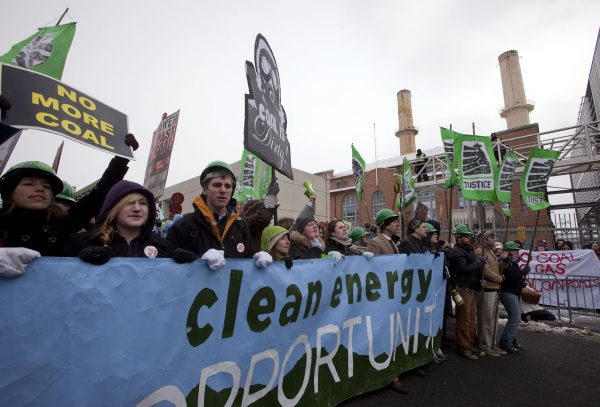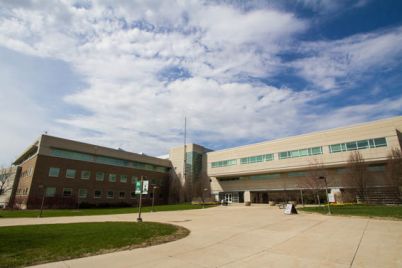
Demonstrators march for clean energy protesting at a rally on Capitol Hill and at a coal power plant in Washington, DC, on Monday, March 2, 2009. (Chuck Kennedy/MCT)
By Holly Antal
Contributor
Earth Day may spark over the reality of climate change, but I like a low, healthy blood pressure so I avoid the topic.
I’d rather talk with like-minded people about flaws in our thinking. In studying natural sciences, I’ve learned to challenge my beliefs and those of allies. The internet is a big advantage to find information fast. The catch is, it can take effort to discern fact from fiction, and sometimes expertise to recognize errors. All belief systems are vulnerable to manipulation, but it’s difficult to see how we fall for it. Our climate’s worsening condition stresses how important it is to rethink our actions. Helping the planet is a vital cause, but it makes for great marketing. Many popular ideas are sold as being helpful, but often depend on bad practices.
Energy saving upgrades are a well-marketed trend that involve flawed systems. Hybrid cars reduce gas emissions, but we charge them on an electric grid that burns fossil fuels. According to the EPA, transportation, industry and electricity make up almost 70% of emissions. Homes, businesses, and farming share the rest, according to a report from the EPA. Everyone could lower thermostats and take cold showers, but it won’t erase bigger issues. We’ve evolved to survive on unsustainable practices. Solar and clean energy have expensive up-front costs. CNN reported that half of American households make $56,000 or less and only 10% of Americans have a household income over $155,000. Most citizens can’t afford to overhaul their homes, and those who can are few and far-between. These improvements are not doing enough. Energy transformation is not a single house issue, but one for a society that exploits finite resources.
Eco-friendly products are another problem. While it is better to purchase biodegradable, ingredients are only one damage factor. Mass-production burns fuel to make, package and transport. Most goods need multiple pieces, and companies source them from around the world. We notice countries building parts for American cars, especially in the Midwest. Do we ask how many miles the material in our furniture moved before buying it? Or if its fabric maker sourced dyes ethically? Our purchases begin as burned fuel and end as waste in landfills. We can load blue bins with papers and plastics, but cities and their contractors take it from there. Local governments and their budgets determine if recyclables get processed. The U.S. exported loads of recyclables until China stopped most garbage imports in 2018. Mass production costs are hitting home. With countless components to our lives, a lot of the harm we do is unknown or impossible to avoid.
This adds up to an overwhelming problem, but we share responsibility for an unhealthy planet. We can’t buy the answer, no matter how green the product is. Personal action is admirable, but one of the best things we can do is vote. We cannot fix this as individuals. Governments and corporations play the biggest role, but we have the power to change them. Swift reform is possible, so while the odds look bad, there are reasons for hope. Our situation calls for flexibility in how we act. We can up-cycle, reuse and buy used when recycling fails. We can commit to spending less and wasting less. We can vote in all elections and work to shrink our combined energy use. We are among the first generations to have incredible access to knowledge with the growth of the internet. This privilege merits staying informed and striving for a well-being that reaches from our home to around the globe.


